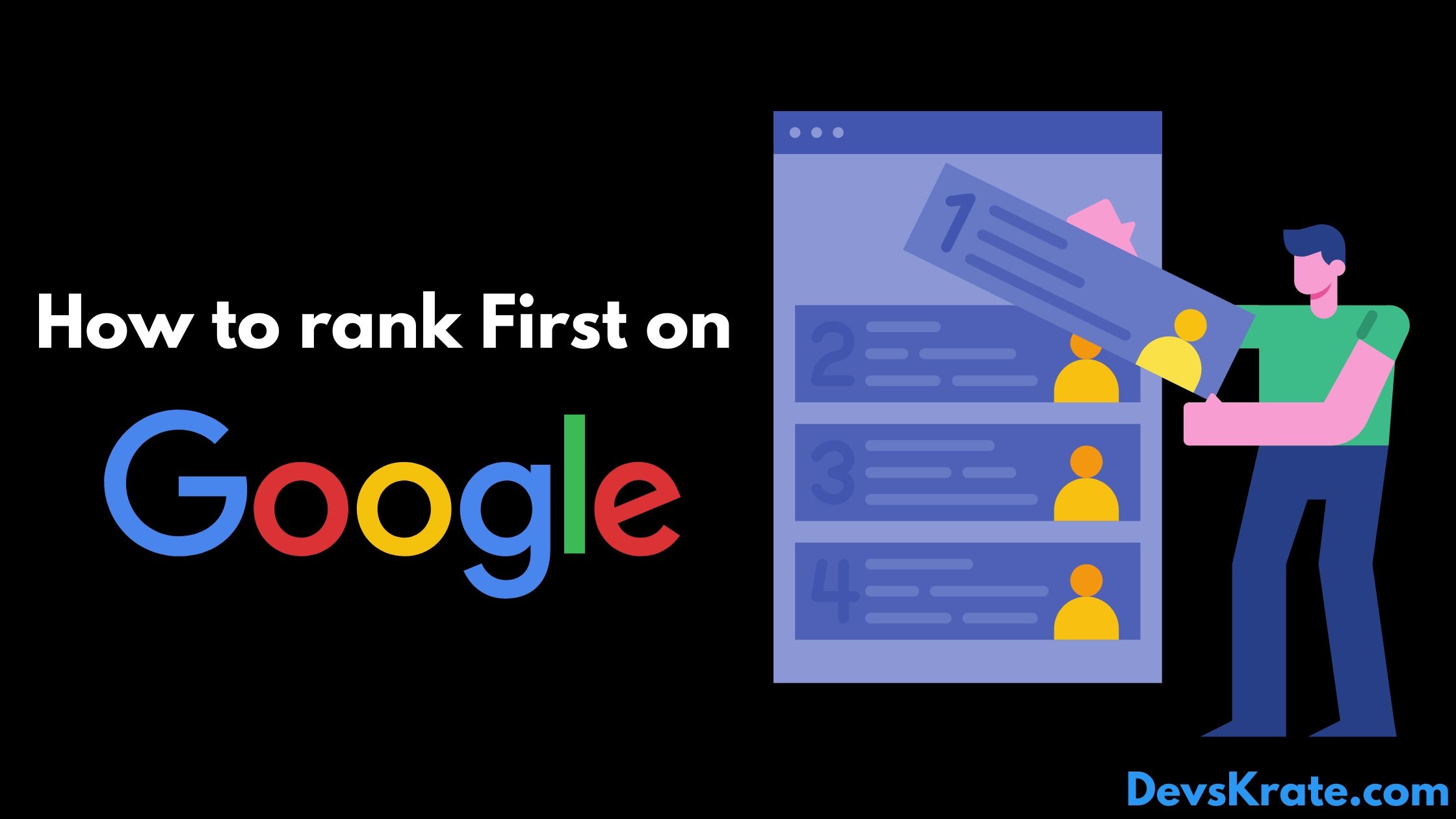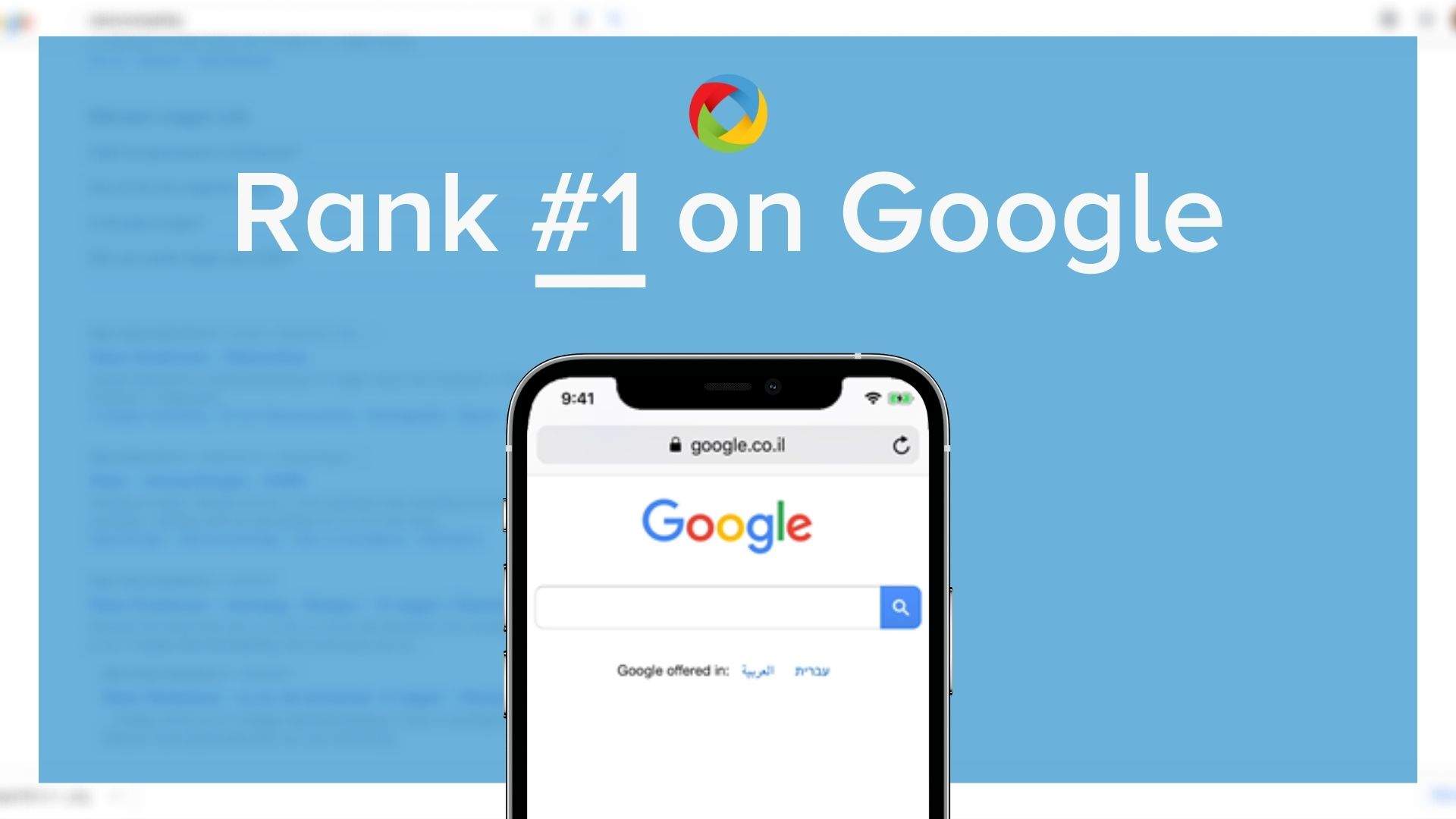**Let me ask you a question—how many times have you sat there scratching your head, wondering why your website isn’t showing up on Google? Yeah, we’ve all been there. Ranking on Google isn’t just about slapping keywords onto your page; it’s a game of strategy, consistency, and understanding how search engines tick. If you’re asking yourself, “How do I rank on Google search?” then you’re in the right place. This article will break it down for you step by step.**
Ranking on Google is like climbing a mountain. You need the right gear, a solid plan, and the willpower to keep going. But here’s the thing—it’s not as hard as you think if you know what to focus on. In this guide, we’ll cover everything from keyword research to backlinks and even some insider tips that most people don’t talk about.
So, buckle up because we’re diving deep into the world of SEO, Google algorithms, and what it takes to make your site stand out in a crowded digital space. By the time you finish reading this, you’ll be ready to take on Google and climb those rankings like a pro.
- St Patricks Day Humor Funny Quotes Jokes To Share
- Rupert Grint From Ron Weasley To Hollywood Star A Look Back
Table of Contents:
- Understanding Google Search
- Keyword Research: The Foundation
- On-Page SEO: Your Website’s Backbone
- Technical SEO: Fixing the Basics
- Content Creation: Quality Over Quantity
- Backlinks: The Power of Authority
- User Experience: Don’t Forget the Humans
- Google Algorithms: Staying Ahead
- Local SEO: For Businesses Near You
- Tracking Progress: Measuring Success
Understanding Google Search
Before we dive into the nitty-gritty, let’s talk about Google itself. Google isn’t just a search engine; it’s a massive AI-driven machine designed to deliver the best possible results to users. When you ask, “How do I rank on Google search?”, you’re really asking how to play by Google’s rules.
Google looks at three main things when ranking pages:
- Relevance: Does your content answer the user’s query?
- Authority: Is your website trusted and credible?
- User Experience: Do visitors enjoy interacting with your site?
If you can nail these three factors, you’re well on your way to ranking higher. But remember, Google’s algorithms are constantly evolving, so staying informed is key.
Why Should You Care About Google Rankings?
Here’s the deal—90% of all online experiences start with a search engine, and Google dominates the market with over 92% of searches. If you’re not showing up on the first page of Google, you’re basically invisible. That’s why mastering SEO is crucial for any business or website owner.
Keyword Research: The Foundation
Keyword research is the cornerstone of any successful SEO strategy. Think of it like this—if you don’t know what people are searching for, how can you give them what they want? When you ask, “How do I rank on Google search?”, keyword research is where you start.
Tools You Need
There are tons of tools out there to help you with keyword research. Some popular ones include:
- Google Keyword Planner
- SEMrush
- Ahrefs
- Ubersuggest
These tools will help you find keywords with high search volume and low competition, making it easier to rank.
But here’s a pro tip—don’t just focus on high-traffic keywords. Long-tail keywords (more specific phrases) can often bring in more targeted traffic. For example, instead of targeting “SEO tips,” try something like “beginner SEO tips for small businesses.”
On-Page SEO: Your Website’s Backbone
Once you’ve got your keywords, it’s time to optimize your website. On-page SEO involves everything you can control directly on your site, from title tags to meta descriptions. If you’re wondering, “How do I rank on Google search?”, on-page SEO is a huge piece of the puzzle.
Title Tags and Meta Descriptions
Your title tag is the first thing users see in search results, so make it count. Include your main keyword, but keep it under 60 characters. Meta descriptions, while not a direct ranking factor, can increase click-through rates if they’re compelling.
Example:
- Title Tag: “How to Rank on Google Search – Beginner’s Guide”
- Meta Description: “Learn how to rank on Google search with this step-by-step guide. Boost your SEO and drive more traffic to your website today!”
Technical SEO: Fixing the Basics
Technical SEO might sound intimidating, but it’s all about making sure your site is easy for Google to crawl and index. If you’re asking, “How do I rank on Google search?”, technical SEO is where the groundwork happens.
Mobile-Friendliness
With more than 50% of searches happening on mobile devices, having a mobile-friendly site is non-negotiable. Google’s mobile-first indexing means it primarily looks at the mobile version of your site when ranking pages.
Here’s how to check if your site is mobile-friendly:
- Use Google’s Mobile-Friendly Test tool
- Ensure your site loads quickly on mobile
- Use responsive design
Content Creation: Quality Over Quantity
Content is king, and if you want to rank on Google, you need to create content that people actually want to read. When you ask, “How do I rank on Google search?”, content quality should always be at the forefront of your mind.
Types of Content
There’s no one-size-fits-all approach to content. Depending on your audience, you might want to create:
- Blog posts
- Infographics
- Video tutorials
- Podcasts
Whatever format you choose, make sure it’s well-researched, engaging, and provides value to your readers.
Backlinks: The Power of Authority
Backlinks are like votes of confidence from other websites. The more high-quality backlinks you have, the more authoritative Google sees your site. If you’re wondering, “How do I rank on Google search?”, backlinks are a powerful way to boost your rankings.
Guest Blogging
One of the best ways to earn backlinks is through guest blogging. Find reputable websites in your niche and offer to write a guest post. Make sure to include a link back to your site in the author bio or within the content.
User Experience: Don’t Forget the Humans
Google cares about user experience because it wants to deliver the best possible results to its users. If your site is hard to navigate or takes forever to load, you’re not providing a good experience, and Google will notice.
Page Speed
Page speed is a critical factor in user experience. Use tools like Google PageSpeed Insights to test your site’s performance and identify areas for improvement.
Here are some tips to improve page speed:
- Compress images
- Minimize CSS and JavaScript files
- Use a content delivery network (CDN)
Google Algorithms: Staying Ahead
Google’s algorithms are constantly changing, and keeping up with them is a full-time job. From Panda to Penguin, Google has rolled out numerous updates over the years, each targeting different aspects of SEO.
Core Web Vitals
One of the latest updates focuses on Core Web Vitals, which measure key aspects of user experience:
- Largest Contentful Paint (LCP): Measures loading performance
- First Input Delay (FID): Measures interactivity
- Cumulative Layout Shift (CLS): Measures visual stability
Optimizing for Core Web Vitals can help you rank higher and provide a better experience for your users.
Local SEO: For Businesses Near You
If you’re a local business, local SEO is essential for getting found by nearby customers. When people search for “plumbers near me” or “best coffee shops in town,” they want results that are geographically relevant.
Google My Business
Claiming and optimizing your Google My Business listing is one of the best things you can do for local SEO. Make sure your business name, address, and phone number (NAP) are consistent across all platforms.
Tracking Progress: Measuring Success
Finally, it’s important to track your progress and measure the success of your SEO efforts. Use tools like Google Analytics and Google Search Console to monitor your rankings, traffic, and other key metrics.
Here’s what to look for:
- Organic traffic growth
- Keyword rankings
- Bounce rate
- Conversion rate
Set Realistic Goals
SEO isn’t an overnight process. It takes time, effort, and patience to see results. Set realistic goals and celebrate small wins along the way. Remember, every step forward is a step closer to ranking higher on Google.
Kesimpulan
Ranking on Google isn’t rocket science, but it does require a solid strategy and consistent effort. By focusing on keyword research, on-page SEO, technical SEO, content creation, backlinks, user experience, and staying up-to-date with Google’s algorithms, you can improve your chances of success.
So, what are you waiting for? Start implementing these tips today and watch your rankings climb. And don’t forget to share this article with your friends and leave a comment below. Let’s keep the conversation going!
- St Patricks Day Humor Funny Quotes Jokes To Share
- Unveiling Benjamin Halls Resilience A Journey Beyond Limits


